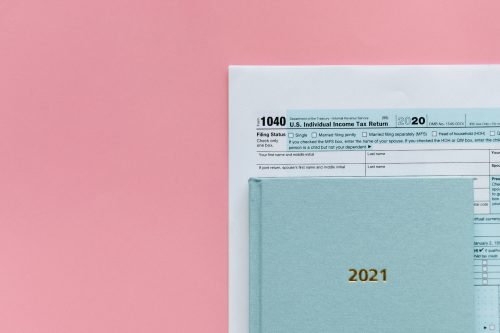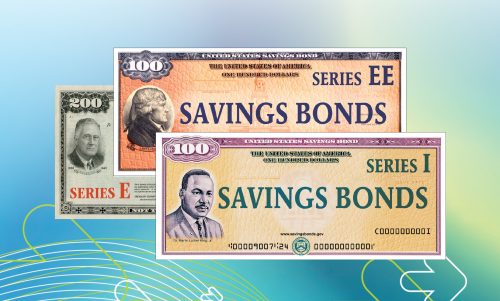If your business is thriving, you may be thinking about expansion. And while expanding can be an exciting next step in growing your business, it also comes with considerable expenses. Applying for a small business loan can help you access the funding needed to expand without locking up too much of your company’s cash flow.
What’s a small business loan?
A small business loan is a financing option offered by lenders to businesses. These loans can be used to cover various business expenses, such as:
- Covering daily expenses
- Hiring employees
- Purchasing equipment
- Remodeling office or commercial space
When you get a small business loan, you’re making it easier to maintain liquidity through better working capital. Your working capital is the total amount of cash you have on hand after liabilities are paid and excluding pending invoice payments from your clients. Think of working capital as the cash you have in your business checking account: this is the money you have to run your business on a daily basis.
Small business loans make it easier to maintain liquidity by providing you with a financial buffer for short-term needs (covering daily expenses, payroll, seasonal hiring) or the capital needed to expand, remodel, or renovate your business for long-term growth.
How small business loans work
Small business loans give companies access to money for business projects and operations. When you apply for a small business loan, lenders will consider your credit history as a guarantor (a person who promises to be held individually responsible for repaying business debt) and business financial statements demonstrating the year-over-year health of your company. In general, factors like personal and business credit scores help determine your interest rate, as well as how much you can borrow.
Repayment terms range between days, months or years — depending on your lender, this may vary by credit history, business financials and the size of your loan. You’ll typically pay interest on the loan total when you make these repayments.
Benefits of a small business loan
There are several benefits to taking out a small business loan. They can provide you with a large amount of capital, which can help you fund a variety of business needs, and you’re likely to get a good interest rate if your credit history is strong. Plus, there are a variety of loan types, which means you’re likely to find the right one for your needs.
How do I qualify for a small business loan?
There are several requirements you’ll need to meet in order to qualify for a loan, as well as some specific information your lender will want to see before proceeding. These details include (but may not be limited to):
- Personal and business credit score
- Credit reports
- Financial statements demonstrating the health of your company
- Collateral
Lenders may ask you for additional information beyond these key details. It’s important to provide as much information about your business and personal finances as possible before beginning the application process.
If your credit history and business financials are strong, you may want to consider a small business loan. Once you take stock of your business needs, you can then determine where to apply for a business loan—and which type of loan is right for you.
Where to get a small business loan
There are several types of lenders to consider for a business loan. The most common small business lenders are banks and credit unions, but you may be eligible for a Small Business Administration (SBA) loan, which can help you get preferential interest rates and larger sums of money from certain banking partners.
Types of small business loans
There are a host of different small business lending options available to business owners. Each loan type is designed for different use cases and financial requirements, so it’s critical to investigate each option — and their varying terms — thoroughly. Broadly speaking, term loans are best suited for longer-term purchases, and lines of credit are usually for shorter-term cash flow needs.
Small business term loans
Small business term loans are perhaps the most well-known option for business financing. Term loans provide borrowers with a certain amount of money in a lump-sum payment, which you can then use to help pay for business expenses or new ventures like expansion. In exchange, you agree to make recurring payments, plus interest, upon receiving the funds. You may also be asked to provide collateral to secure the loan, which can take the form of cash, property, equipment or inventory, depending on the loan agreement.
Small Business Administration (SBA) loans
SBA loans are similar to bank term loans, albeit with a few caveats that can benefit applicants. The SBA does not lend money to businesses; rather, it partners with banks and credit unions to offer a guarantee on loans that make it through the SBA’s approval process.
The SBA guarantees up to 80% of your loan amount, meaning banks and financial institutions can worry less about the risk of not getting paid back. This also empowers banks to lend greater amounts of money and offer longer repayment periods than usual. This makes SBA loans very attractive to business owners, which also means they can be challenging to get. Plus, the SBA loan approval process may take longer than a term loan’s approval timeline.
Small business lines of credit
A small business line of credit is a great option for businesses that need periodic, flexible access to cash, rather than a lump sum. After you’re approved for a business line of credit, lenders provide you with access to a set amount of money, over a set period of time (called the draw period). Similar to a credit card, you can pull out funds as necessary up to the loan limit during this draw period, and you only pay interest on the money you use. Amounts repaid during the draw period may be re-borrowed.
Unlike credit cards, though, business lines of credit often come with lower interest rates and higher spending limits.
Small business credit cards
Small business credit cards help owners pay for company-related expenses without having to disrupt their cash flow in the process. It’s often easier to get approval for a business credit card than other loan types, which can be helpful if you need access to money quickly. Bear in mind that business credit cards usually come with interest rates that are higher than other loan options, so it’s not ideal to carry a high balance on them.
Equipment financing loans
Equipment financing can be a good option for small business owners that need to borrow money to pay for new business equipment or machinery. There’s often less information required to get one, as well. To get started, you typically only need to provide basic business information and documentation about the price of the equipment.
These loans can be easier to get than other options because the equipment you purchase is used as collateral. If you don’t keep up with the loan payments, the lender can seize the equipment.
Merchant cash advances
A merchant cash advance (MCA) is one of the fastest ways businesses can access capital, but not without significant setbacks. MCAs are typically the last option you should consider when looking for a small business loan. Instead of providing you with a loan, the provider gives you a sum of cash up-front in exchange for a portion of your company’s future sales.
Your MCA provider may request a cut from your credit and debit card sales to repay what you owe, or they can pull funds directly from your business bank account every week through Automated Clearing House (ACH) withdrawals. Most MCAs require you to make daily or weekly payments inclusive of fees until your balance is paid in full.
Working capital loans
Working capital lines of credit are designed to help businesses finance their daily operations. These loans can’t be used to buy assets or finance long-term projects. Rather, they’re designed to give businesses additional working capital to help cover financial shortfalls.
Unsecured working capital loans can be difficult to get without good to excellent credit. You may get approved with lower credit if you pursue a collateralized working capital loan, which means you have to provide collateral as part of the agreement.
Accounts receivable financing
Accounts receivable funding can be a helpful source of fast cash. Applicants provide lenders with a set of invoices and a request for funding. With most accounts receivable funding, businesses hand over invoices to their lender in exchange for a percentage of the total of the invoices. The lender then collects and keeps the money from the invoices provided by the business.
Is a small business loan right for me?
Small business loans come in a variety of different shapes and sizes and can be an important source of funding for business owners. The key is to know which loan might work best for your business objectives, as well as what you qualify for based on your current financial situation. You’ll also want to consider how quickly you’ll need funding, as each loan process may take a different amount of time.










